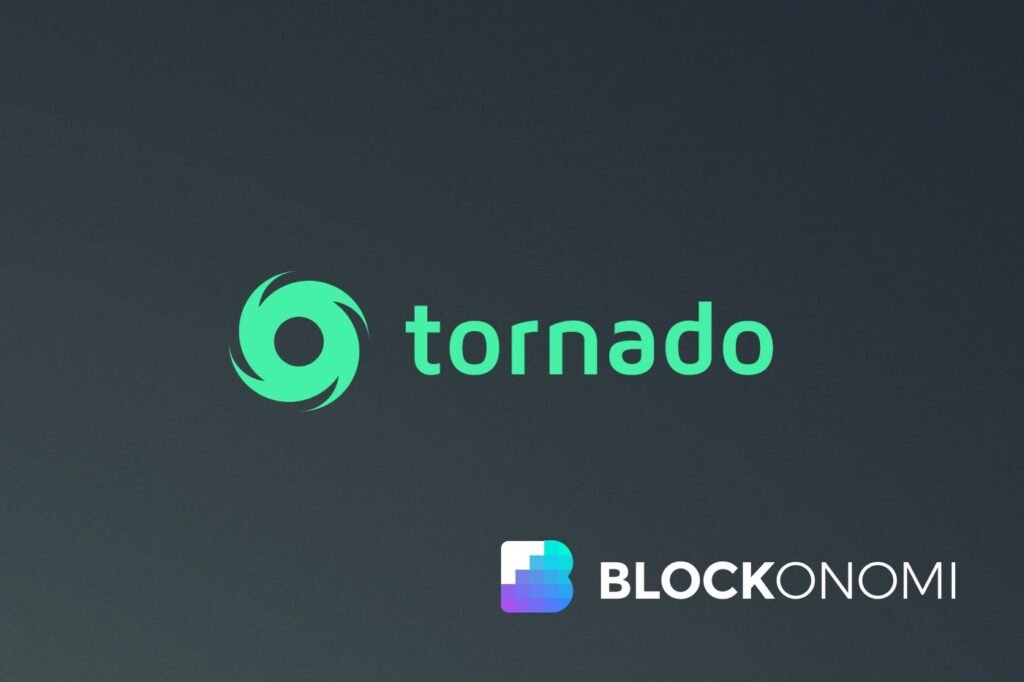TLDR
- Fifth Circuit Court ruled that immutable smart contracts can’t be sanctioned as property, favoring Tornado Cash
- TORN token surged over 380% following the ruling, reaching nearly $35 before settling at $17.17
- DeFi market cap increased by 8.2% daily and 21.5% weekly after the decision
- Major DeFi tokens like Uniswap, Aave, and Ethena reached multi-month highs
- Tornado Cash developer Alexey Pertsev remains in custody despite the favorable ruling
The Fifth Circuit Court delivered a landmark ruling on Tuesday, determining that immutable smart contracts cannot be classified as property or be subject to sanctions under current laws. The decision directly challenges the U.S. Treasury’s previous sanctions on the cryptocurrency mixer Tornado Cash.
The court’s ruling specifically addressed the nature of autonomous software in the blockchain space, stating that when smart contracts are immutable – meaning no entity can modify or control them – they fall outside the traditional definition of property that can be sanctioned under existing legal frameworks.
Markets responded swiftly to the news, with Tornado Cash’s native token TORN experiencing a dramatic price increase. The token surged to almost $35 on Tuesday morning, marking a 380% gain. By the time of reporting, TORN had settled at $17.17, still maintaining a 382.9% increase over its pre-ruling price.
The decision sparked a broader rally across the decentralized finance (DeFi) sector. The total DeFi market capitalization rose 8.2% in 24 hours and accumulated a 21.5% increase over the week, according to data from CoinGecko.

Major DeFi protocols recorded notable gains following the announcement. Uniswap’s UNI token climbed 11% to reach $12.50, its highest point in eight months. Similarly, Aave’s AAVE token rose by 8.6%, while Ethena’s ENA token increased by 23%, both reaching multi-month highs.
Former Coinbase CTO Balaji Srinivasan celebrated the ruling on X (formerly Twitter), declaring, “Privacy won. Smart contracts won. Tornado Cash won. And OFAC lost.”
Investment research firm 10X Research noted in their analysis that while the ruling does not endorse money laundering, it creates a precedent that allows programmers to develop and release smart contract protocols without fear of sanctions, provided they do not charge fees.
The impact appears particularly positive for the Ethereum network, which hosts the majority of decentralized applications and DeFi protocols. The ruling provides developers with clearer guidelines about what they can build without risking regulatory intervention.
Privacy-focused cryptocurrencies initially saw price increases following the news but have since moderated their gains to around 2% over the past 24 hours.
The broader cryptocurrency market also showed strength, with Bitcoin reaching $97,360 before settling at $96,320, showing a 5% increase over 24 hours.
While the ruling represents a legal victory for privacy advocates and blockchain developers, it’s worth noting that Alexey Pertsev, a Tornado Cash developer, remains in custody. Pertsev, who was found guilty by a Dutch court in May on money laundering charges, recently announced that his pre-trial detention has been extended.
10X Research emphasized that this decision could have far-reaching effects for the DeFi ecosystem, particularly for protocols operating on the Ethereum network.
The ruling creates a distinction between immutable smart contracts and traditional property, potentially reshaping how regulatory bodies approach decentralized technologies.
For developers in the space, the decision provides a clearer framework for creating new protocols without immediate regulatory concerns, as long as they maintain true immutability and avoid fee structures.
The market response suggests investors view this as a positive development for the broader cryptocurrency ecosystem, particularly for platforms focused on privacy and decentralized finance.
